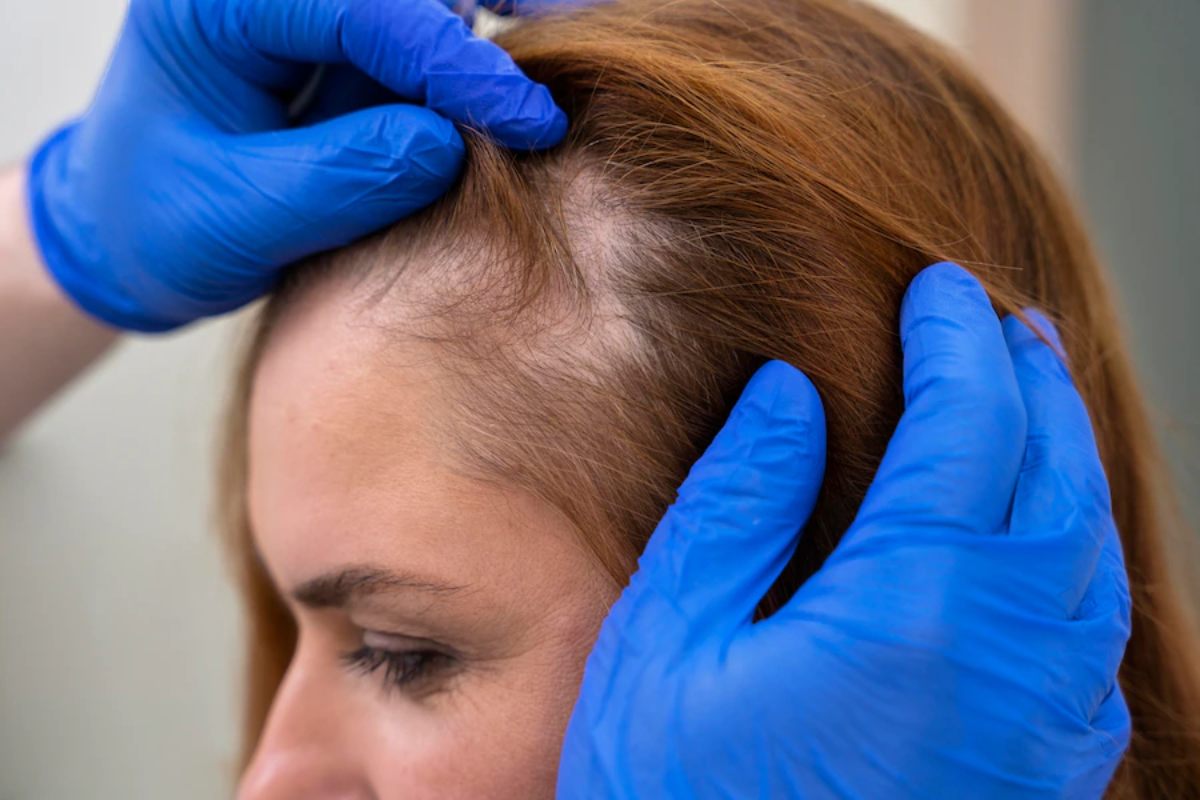Alopecia areata, commonly referred to as spot baldness, is an autoimmune disorder that causes sudden hair loss. Hair loss can occur anywhere on the body but most commonly occurs in small circular patches on the scalp or face. Anyone can develop alopecia, which can happen at any age — even in children. If you have friends or family dealing with alopecia, here are some tips that may help you be supportive in the face of their hair loss.
Table of Contents
A brief history of alopecia
Alopecia is an autoimmune disorder that causes hair loss. It can happen suddenly or gradually, affecting any area of the body, from the scalp to the eyebrows to the pubic region. In some people, alopecia manifests as a single patch of hair loss (alopecia areata), while in others, it may affect a large area of skin. Treatment for alopecia varies based on severity and location, but there are many things we can do to show our support and help someone who has alopecia feel confident again.
Understand how someone who is losing hair feels
When someone has alopecia, they are likely to feel like they’re in a very difficult situation. It can be frustrating to deal with the emotional and physical changes that come with having this condition, and they may feel like their whole life is falling apart. The sudden hair loss can cause them to feel self-conscious about themselves, making them feel like everyone is staring at them. There are so many things about alopecia that people don’t understand unless they have had the experience of losing their hair or seeing someone close to them lose their hair, which means there’s a lot of misinformation out there.
What can you do to help?
Educate yourself about alopecia areata and what it is like to live with it. Whatever you do, don’t touch the hair or scalp without permission, as this can be very painful for those with an active case of alopecia areata. Offer encouragement and positive reinforcement, but don’t pretend to know what someone is going through if you don’t. If they bring up wearing wigs, offer to go wig shopping with them so they don’t have to feel alone during this time. If you would like more support on how to be supportive while wig shopping, this post about wigs for alopecia is very helpful to use as a guide.
What NOT to do for someone with alopecia
Don’t touch the person’s hair without asking first. Don’t comment on how it looks like they have a bald spot. Don’t tell them they will look better when it grows back in. Don’t avoid them because you don’t know what to say. And don’t tell them that they should shave their head, even if you think it would be easier for them in the long run. You don’t know how sensitive the person may be, so try to avoid personal opinions and just listen and be there for them the way they need you to be.
Finding support
A lot of people are unsure of how to offer support to someone who has alopecia. It’s important to remember that the person with alopecia is not defined by hair loss. They’re a whole person, just like anyone else. Your friend or family member may feel self-conscious about themselves, but they need to know they are still beautiful and worthy of love and acceptance. Here are some tips on how you can help:
1) Let them know that they don’t have to change their appearance in any way because they have alopecia – it’s part of who they are, and you love them for it!
2) Encourage them to talk to other people with alopecia and make new friends through social media communities.
3) Share articles or blog posts with them about how they can cover their heads without using wigs or other similar items.
4) Offer gentle encouragement if they want to experiment with different hairstyles.
5) If they decide to shave all of their hair off, ask if you can watch so you can see what it looks like from start to finish.
6) Remind your loved one that no matter what happens, there will always be someone out there who loves him/her unconditionally for the beauty within
I hope you found this post helpful! It can be hard to know how to help someone with alopecia, but with a little thoughtfulness and creativity, you’ll be able to show them that they are not alone.

